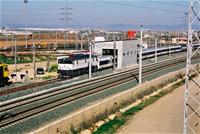Subsidies as a burden for taxpayers
Adelina Marini, January 23, 2010
 Bulgarians, and maybe not only them, are quite keen on ignoring without reason news like: "The government paid on the very next day the subsidies of the Bulgarian Railway Company" or "The cabinet, after the order of the prime minister, immediately paid the money of the High Court Council", or "The Agriculture and Fisheries Council took into account the argument of the Bulgarian government and allowed it to pay additional 161 mn to the tobacco producers in the country" and so on and so forth. However such news are important because they show that the government has no system at all neither an intention to explain to the society, firstly, why did it have to delay the money since it had it? Second, are we all going to get if we ask for? And, third, but not in significance, why will the government be reinforced by another economic thought? (the prime minister has announced this week that he will appoint another deputy prime minister to join the economic team of the cabinet)
Bulgarians, and maybe not only them, are quite keen on ignoring without reason news like: "The government paid on the very next day the subsidies of the Bulgarian Railway Company" or "The cabinet, after the order of the prime minister, immediately paid the money of the High Court Council", or "The Agriculture and Fisheries Council took into account the argument of the Bulgarian government and allowed it to pay additional 161 mn to the tobacco producers in the country" and so on and so forth. However such news are important because they show that the government has no system at all neither an intention to explain to the society, firstly, why did it have to delay the money since it had it? Second, are we all going to get if we ask for? And, third, but not in significance, why will the government be reinforced by another economic thought? (the prime minister has announced this week that he will appoint another deputy prime minister to join the economic team of the cabinet)
In the same flow of thoughts are also the deliberations of the Institute for Market Economy (IME) which has dedicated a large part of its weekly bulletin to the infection "subsidies". Under the title "It is not the one who gets subsidies' fault but the one who gives them", the economic analyst Velin Peev quoted a case with the airline company Ryan air, explaining that the company in fact is blackmailing the state. The story, told by Velin Peev is the following: "A small French town accused the very famous airline company with extremely good economic results Ryan air in blackmailing because the company wanted the municipality to increase 4 times the subsidies for the airline sector up to 1.4 mn euro per year. Otherwise, Ryan air would suspend its flights to and from the local airport".
Further on Mr. Peev goes on by writing that "this is not the first case where the airline openly states that it wants direct financial transfer from the state, meaning taxpayers' money. This has happened to a number of small airports around Europe and is forming as an overall strategy of the company. Sounds amazing, isn't it? One of the best performing companies on the continent wants the state to give money to it! Why? The reply is: because it can. Because the state is doing it".
And the economic trainee at IME Tsvetelina Nenova has dedicated another article about the  drama in the Bulgarian Railway Company, reminding that because of the strike of the workers in the company in the first days of 2010, the government has urgently paid the subsidy of the railway company of 13.3 mn levs (6.82 mn euro) and then decided to increase the capital of the company by 24 mn levs (12.3 mn euro) so as to enable the Bulgarian Railway Company to pay its state guaranteed loans. Here, again, no explanations are given why, against what and was it really necessary to pay this money from the thin Treasury, especially in times of strikes and protests. The TV stations which demonstrate sympathies to the government, aired all week shaking personal stories of workers at the state-owned company who spent 20-30 years of their life working there and expecting a prize for never even trying to develop personally or professionally. And the state did award them!
drama in the Bulgarian Railway Company, reminding that because of the strike of the workers in the company in the first days of 2010, the government has urgently paid the subsidy of the railway company of 13.3 mn levs (6.82 mn euro) and then decided to increase the capital of the company by 24 mn levs (12.3 mn euro) so as to enable the Bulgarian Railway Company to pay its state guaranteed loans. Here, again, no explanations are given why, against what and was it really necessary to pay this money from the thin Treasury, especially in times of strikes and protests. The TV stations which demonstrate sympathies to the government, aired all week shaking personal stories of workers at the state-owned company who spent 20-30 years of their life working there and expecting a prize for never even trying to develop personally or professionally. And the state did award them!
And the conclusion which Tsvetelina Nenova draws is a conclusion any single economist can do on his own without making it necessary for the government to import economic specialists from abroad: "The real effect of the subsidies for the Bulgarian Railway Company is that they support the status quo in the company, slow down the reorientation of the employers to other fields of activity and put barriers in front of new competitors at the railway market and the transport sector as a whole. These effects can be in harmony with the goals of the European Commission to develop the pan-European railway infrastructure at all costs but they also prove that the Community is not based on market principles at all. The argument that the sector artificially creates jobs in regions, defined centrally in period of economic hardships doesn't mean that it generates economic development. Or at least, it does not mean that the market would have generated less economic development if left alone to direct the capital flows to the most attractive sectors and regions".
There are several more very interesting articles in the weekly bulletin of the IME regarding the influence of the state at the market. And this could have not been that worse if the government, which constantly states that the people has given its confidence to select the team and to make decisions, has at least tried to keep the voters informed. Because it is possible that many people have voted for the government but they voted without having a single idea how this government was going to work. The took the risk, in some sort, hoping that this would be the government which will explain to the taxpayers why it spent every single euro and what results it expected. In other words, the government is obliged to report not only to its voters but to the taxpayers as well because it is spending their money no matter if they voted for it or not.
And if this cabinet is keen on organising populist referenda so as to show support for its hidden coalition partner, then let it be so kind to clarify its position about referenda or to start asking about the important things like subsidies for the railway workers, the small village hospitals, breakfast at schools, the euro, the energy and so on, or stop asking but start reporting. Otherwise, the day when a lot of people will start asking for state support will not be long. And maybe this was the reason why the majority in parliament voted to stop these attempts by forbidding protests around key government buildings! Is that right, Mr. prime minister? Or again the word had the democracy in your own party?